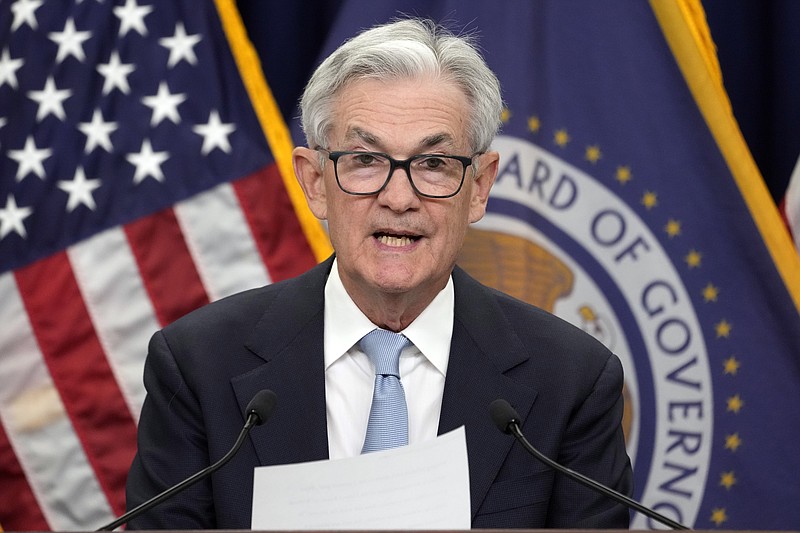By CHRISTOPHER RUGABER
AP Economics Writer
WASHINGTON (AP) -- The Federal Reserve extended its year-long fight against high inflation Wednesday by raising its key interest rate by a quarter-point despite concerns that higher borrowing rates could worsen the turmoil that has gripped the banking system.
At the same time, the Fed warned that the financial upheaval stemming from the collapse of two major banks is "likely to result in tighter credit conditions" and "weigh on economic activity, hiring and inflation."
The central bank also signaled that it's likely nearing the end of its aggressive streak of rate hikes. In its statement, it removed language that had previously said it would keep raising rates at upcoming meetings. The statement now says "some additional policy firming may be appropriate" -- a weaker commitment to future hikes.
And in a series of quarterly projections, the policymakers forecast that they expect to raise their key rate just once more -- from its new level Wednesday of about 4.9% to 5.1%, the same peak level they had projected in December.
Still, in its latest statement, the Fed included some language that indicated its inflation fight remains far from complete. It noted that hiring is "running at a robust pace" and "inflation remains elevated." It removed a phrase, "inflation has eased somewhat," that it had included in its statement in February.
Speaking at a news conference Wednesday, Chair Jerome Powell said, "The process of getting inflation back down to 2% has a long way to go and is likely to be bumpy."
The latest rate hike suggests that Powell is confident that the Fed can manage a dual challenge: Cool still-high inflation through higher loan rates while defusing turmoil in the banking sector through emergency lending programs and the Biden administration's decision to cover uninsured deposits at the two failed banks.
The Fed's signal that the end of its rate-hiking campaign is in sight may also soothe financial markets as they digest the consequences of the U.S. banking turmoil and the takeover last weekend of Credit Suisse by its larger rival UBS.
The central bank's benchmark short-term rate has now reached its highest level in 16 years. The new level will likely lead to higher costs for many loans, from mortgages and auto purchases to credit cards and corporate borrowing. The succession of Fed rate hikes have also heightened the risk of a recession.
The troubles that suddenly erupted in the banking sector two weeks ago likely led to the Fed's decision to raise its benchmark rate by a quarter-point rather than a half-point. Some economists have cautioned that even a modest quarter-point rise in the Fed's key rate, on top of its previous hikes, could imperil weaker banks whose nervous customers may decide to withdraw significant deposits.
Silicon Valley Bank and Signature Bank were both brought down, indirectly, by higher rates, which pummeled the value of the Treasurys and other bonds they owned. As depositors withdrew money en masse, the banks had to sell the bonds at a loss to pay the depositors. They couldn't raise enough cash to do so.
After the fall of the two banks, Credit Suisse was taken over by UBS. Another struggling bank, First Republic, has received large deposits from its rivals in a show of support, though its share price plunged Monday before stabilizing.
The Fed is deciding, in effect, to treat inflation and financial turmoil as distinct problems, to be managed simultaneously by separate tools: Higher rates to tame inflation and greater Fed lending to banks to calm financial turmoil.
But economists warn that many mid-size and small banks, to conserve capital, will likely become more cautious in their lending. A tightening of bank credit could, in turn, reduce business spending on new software, equipment and buildings. It could make it harder for consumers to obtain auto or other loans.
Some economists worry that such a slowdown in lending could be enough to tip the economy into recession. Wall Street traders are betting that a weaker economy will force the Fed to start cutting rates this summer.
The Fed would likely welcome slower growth, which would help cool inflation. But few economists are sure what the effects would be of a pullback in bank lending.
